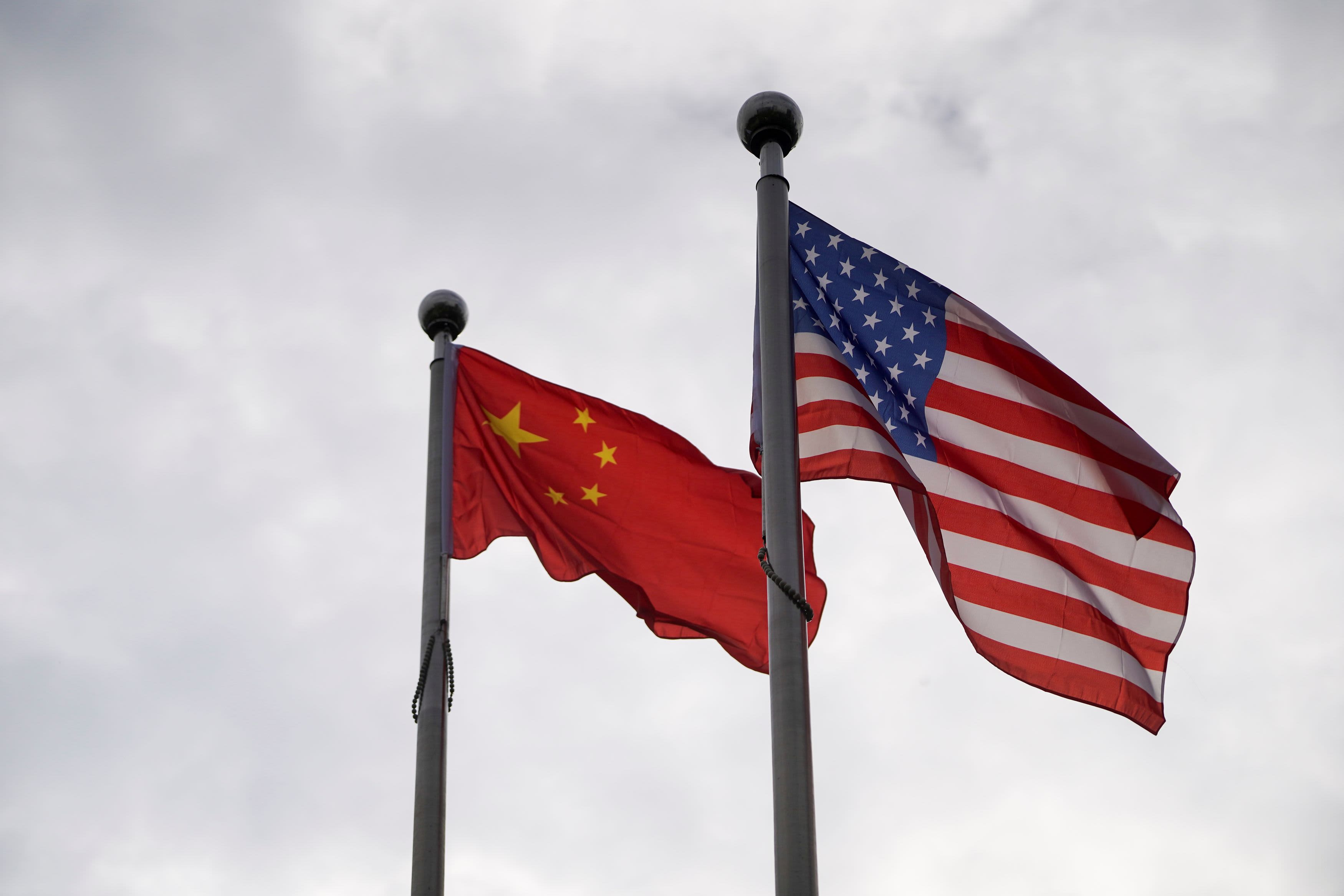U.S. blacklists 34 Chinese entities, citing human rights abuses and ‘brain-control weaponry’

Chinese and U.S. flags flutter outside a company building in Shanghai, China November 16, 2021.
Aly Song | Reuters
WASHINGTON – The Biden administration said Thursday it imposed trade restrictions on more than 30 Chinese research institutes and entities over human rights violations and the alleged development of technologies, such as brain-control weapons, that undermine U.S. national security.
The Commerce Department accused China’s Academy of Military Medical Sciences and 11 of its research institutes of using biotechnology “to support Chinese military end uses and end users, to include purported brain-control weaponry,” according to a notice in the Federal Register.
The notice does not elaborate further on the alleged brain-control weaponry.
“The scientific pursuit of biotechnology and medical innovation can save lives. Unfortunately, the PRC is choosing to use these technologies to pursue control over its people and its repression of members of ethnic and religious minority groups,” U.S. Secretary of Commerce Gina Raimondo wrote in a statement referring to the People’s Republic of China and human rights abuses in China’s far-west region of Xinjiang.
The State Department has previously described the abuse of Uyghurs and members of other Muslim minorities as in the Xinjiang region as “widespread, state-sponsored forced labor” and “mass detention.”
Earlier this month, the White House announced a diplomatic boycott of the 2022 Winter Olympics in Beijing, citing “ongoing genocide and crimes against humanity in Xinjiang and other human rights abuses.”
Beijing denies that it has abused religious and ethnic minorities in Xinjiang.
The Commerce Department listed four additional Chinese corporations to its Entity List for their role in modernizing China’s military, which runs contrary to U.S. national security and foreign policy interests.
The department also added five other Chinese companies for allegedly “acquiring or attempting to acquire technology from the United States to help modernize the People’s Liberation Army.”
U.S. officials have long complained that Chinese intellectual property theft has cost the economy billions of dollars in revenue and thousands of jobs. They have also said that it threatens national security. Meanwhile, Beijing maintains that it does not engage in intellectual property theft.
The Chinese Embassy in Washington, D.C., did not immediately respond to CNBC’s request for comment.
The Commerce Department also took action against entities located in Georgia, Malaysia and Turkey for allegedly “diverting or attempting to divert U.S. items to Iran’s military programs.”
“Specifically, these entities are a part of a network used to supply or attempt to supply Iran with U.S-origin items that would ultimately provide material support to Iran’s defense industries, in violation of U.S. export controls,” the notice said.
In total, the Commerce Department took action against 34 entities in China, three in Georgia, one in Malaysia and two in Turkey.




